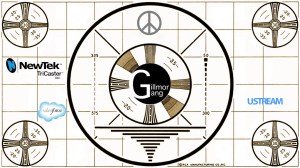This argument over Web3 is really exciting. How does one call out either of the two main protagonists? Jack Dorsey has an unlimited hall pass now that he’s free of Wall Street’s hound dogging adult supervision of Twitter, and he’s using it for some subtle purpose. I don’t know the guy well, but I’ve always appreciated his counter-conventional attitude toward great truths he has no time for. Marc Andreessen I don’t know so well either, but I’m desperate not to be blocked by him. I listened to a Kara Swisher Twitter Space today, where she has already been blocked for some reason. She’s becoming my favorite media personality for asking all the questions I might have in a format (live audio) where I will never be invited on stage. As a consequence I find her spaces to be a fantastic validation of the new format because when she’s there, the distinctions between host and speaker and listener are irrelevant.
As Doc Searls reminds me, people in our age bracket are dropping like flies. A few weeks ago we talked about Kim Cameron of the Identity Gang; this week it’s Chris Locke, of Cluetrain fame. We recorded on Clubhouse and the link is in the newsletter below. As you’ll hear, he was nicknamed Rageboy for all the right reasons, an original voice who came along as the Internet gave voice to anyone who showed up. According to Doc, he pretty much invented Cluetrain on the wings of the previous generation of rageboys, with names like Vonnegut and most definitional Hunter S. Thompson. Like John Lennon, who brought Paul in, and Paul, who brought George in, and George, who brought Ringo in, Locke connected Doc, David Weinberger, and a technologist, Rick Levine, who built the website that morphed into the business book. The last add reminds me of the guy in Monty Python who did all the surreal animations that connected the tissues of the group together.
Markets are conversations, Doc and the Cluetrain said, and at the time many felt they understood the fundamental note, what Doc now calls the promise of independence. Today’s conversation about Web3 feels important and epoch-changing, but the last years of Trumpism and the pandemic leave us more cautious about the impact of technology. My semi-literate guess is that both Jack and Marc represent a conversation that depends on both being right, yet the media wants an argument and an afterparty rope line. I don’t hear agreement so much as the John and Paul dialogue: Getting better all the time, Can’t get much worse.
As the warriors of the early Internet begin to pass from the scene, I remember the flush of optimism of that earlier time. The battles were over things like owning our own data, being able to transport it from platform to platform, and forging the social media moment into something we could run with in the broader media world. The influencer role was an outgrowth of that surge, the endorsement model its economic driver. It always felt akin to a record deal in the 70’s and 80’s; you pulled enough of a base to fund a recording session, then shopped it to a label. Success was radio airplay, and the hope of a contract for more recording and support for touring.
At its inception, podcasting offered a bootstrap past the record companies and their marketing departments to a more elastic audience development environment. You no longer needed access to the radio funnel with its strictures of expensive recoupable recording time, loss leader showcase performances, and a scratch-my-back, I’ll-scratch-yours quid pro quo insider angle. All those things were still there, but the scale was compressed.
Recordings could be assembled with low-cost prosumer equipment, synthesizers and MIDI bridged the gap between home and studio settings, and sometimes hit records emerged that used a hybrid between the two domains. The Stones in particular worked up riffs on cassettes and moved the actual tracks over to multitracks for sweetening. On the other end of the pipeline, Stevie Wonder used the same overdubbing and multi-track building of home recording to take complete control of the studio as he went from the Motown music factory to music he wrote, played most if not all of the instruments, and partnered with engineers and technologists to spawn a generation of tools that worked fairly transparently across the industry.
Today’s smart phones, cloud services, and app stores provide much the same transfer of power from the labels to the creators. Newletters and live audio networks make it possible to write, record, and distribute material at little or no additional expense. You can effectively create an audience one post at a time, using social media to promote and engage with a growing network of hosts, speakers, and listeners that float between roles in a social and aspirational way. On Clubhouse, record/replay tools produce what are reminiscent of Top Ten lists of most popular replays. Next up will be most popular with certain groups and mining of metadata about how the members of those groups behave with related shows and artists. This evolution of what used to be called liner notes until the CD format and streaming crushed it drove the market from Top Forty radio to deep cut album-oriented FM, and from there to Netflix analytics that determine renewals based on shows’ impact on retention of valuable subscribers.
As I read this, word choice feels forced and arbitrary. I’m failing at communicating why I like this new platform. Perhaps it’s the excessive noise about the creator economy. Is it an economy when the money to be made is at best an after thought to attracting the same media system ostensibly being reformed? Perhaps it’s the melancholy feeling of viewing the present through the prism of the fading past. I can’t remember the details of that earlier time, just the energy that seemed to pulse out of the electric realtime global moment. A live streaming show captures some of that, but not the shared excitement of the possibilities of the era. I got a glimpse of it the first time I launched a Clubhouse room; the random architecture of the notification and follow system drew a very few people, but more than enough to see how this will supersede full production podcasting as it absorbs it.
As with a similar Twitter Space conversation, you could watch listeners drop in, leave, and over time drop back in. My assumption is that the discussion was marginally more interesting or potentially so than other long tail alternatives. Backing the recording up is a 24 hour-plus crapshoot to enable transcription services, so Clubhouse wins for the moment. And the history of the early days of Twitter v. Facebook shows most early adopters will join both to drive improvements in production automation and analytics extraction. This is not the economy at work but more the environment of early film schools like NYU and USC that spawned a community of directors and producers like Lucas, Coppola, and Scorsese that dominated the New Wave of Hollywood filmmaking.
It’s a fragile thing, market-forming, and not at all clear the commitment of these players to anything other than a winner-take-all strategy. Even though the viral attractions of Twitter are seductive, its past history of bailing on third-party developers and acquisitions like Vine and Periscope helps keep Clubhouse in the game as Twitter wrestles with a post-Dorsey resource battle at the parent company. And it’s not just a Field of Dreams story. Sure, if they build it, they will come. But that’s not what “they” will stay for.
Take the cable networks. Please. How much longer will we stare openmouthed at the dismantling of democracy. Or the war with the virus. We long for answers, not growth opportunities. I read a review of the new Don’t Look Up asteroid movie that described it as good but not great. It’s often characterized as a climate change allegory, but for me it was only about Trump winning reelection. Half the country wouldn’t believe the asteroid was coming until they could see it in the nightime sky, but what really hurt was how many didn’t believe it when they could see it.
The review was on Medium, another Field of Dreams startup. Another post concerned the trope that we’re seeing Omicron turn the pandemic into the common cold. Wishful thinking, but not backed up with the data, which the author says suggests the result could be milder or just as possible more severe. Not comforting, but ever more consequential if we act on the science not our hopes. Technology serves us when we follow the data and take sides. The story of the Beatles is not why they broke up but rather how they got together for so long in the first place.
the latest Gillmor Gang Newsletter
__________________
The Gillmor Gang — Frank Radice, Michael Markman, Keith Teare, Denis Pombriant, Brent Leary and Steve Gillmor. Recorded live Friday, December 10, 2021.
Produced and directed by Tina Chase Gillmor @tinagillmor
@fradice, @mickeleh, @denispombriant, @kteare, @brentleary, @stevegillmor, @gillmorgang
Subscribe to the new Gillmor Gang Newsletter and join the backchannel here on Telegram.
The Gillmor Gang on Facebook … and here’s our sister show G3 on Facebook.

Powered by WPeMatico






